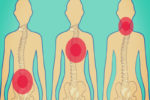Patients with heart failure undergoing major non-cardiac surgical procedures are almost twice as likely to die as other patients, according to a study reported in the Journal of the American College of Cardiology.

With the aging of the American population and the increase in the number of surgeries being performed, the researchers from Duke University said it is crucial to understand why such a disparity in outcomes exists.
“While the risks of coronary artery disease on patients undergoing surgery have always been considered in assessing risk, there is very little data on which to base guidelines for treating patients with heart failure,” said study author Adrian Hernandez, M.D., a Duke cardiologist
In their analysis of 1997-98 Medicare data on patients who underwent major non-cardiac surgery, the researchers found that 1,532 of 23,340 heart failure patients underwent such surgery, compared to 1,757 of 28,710 patients with coronary artery disease. As a control, there were 44,512 patients without heart disease who underwent major non-cardiac surgery. The surgeries included vascular, abdominal, thoracic and orthopedic cases.
The mortality rates for heart failure patients were 11.7 percent, compared to 6.6 percent for coronary artery disease patients and 6.2 percent for patients without heart disease. In terms of readmission rates after surgery, heart failure patients had a 20 percent rate, compared to 14.2 percent for coronary artery disease patients and 11 percent for patients with out heart disease.
“These results point out the need for a disease management approach to heart failure patients where a team of specialists take care of patients before, during and after surgery,” said Duke cardiologist James Jollis, M.D., senior member of the research team.
Hernandez said the situation was similar for coronary artery disease patients 25 years ago, but noted that in the intervening years, steps were taken to improve outcomes for those patients. “We need to do the same now for heart failure patients,” he added.
The researchers seek to better understand the underlying biology of heart failure and how the bodies of these patients respond to the stresses of surgery. Hernandez said that researchers will also look at the treatments these patients receive prior to surgery to see if the treatments have any impact on the outcome. The team will also study what happens during the post-operative phase of care.


